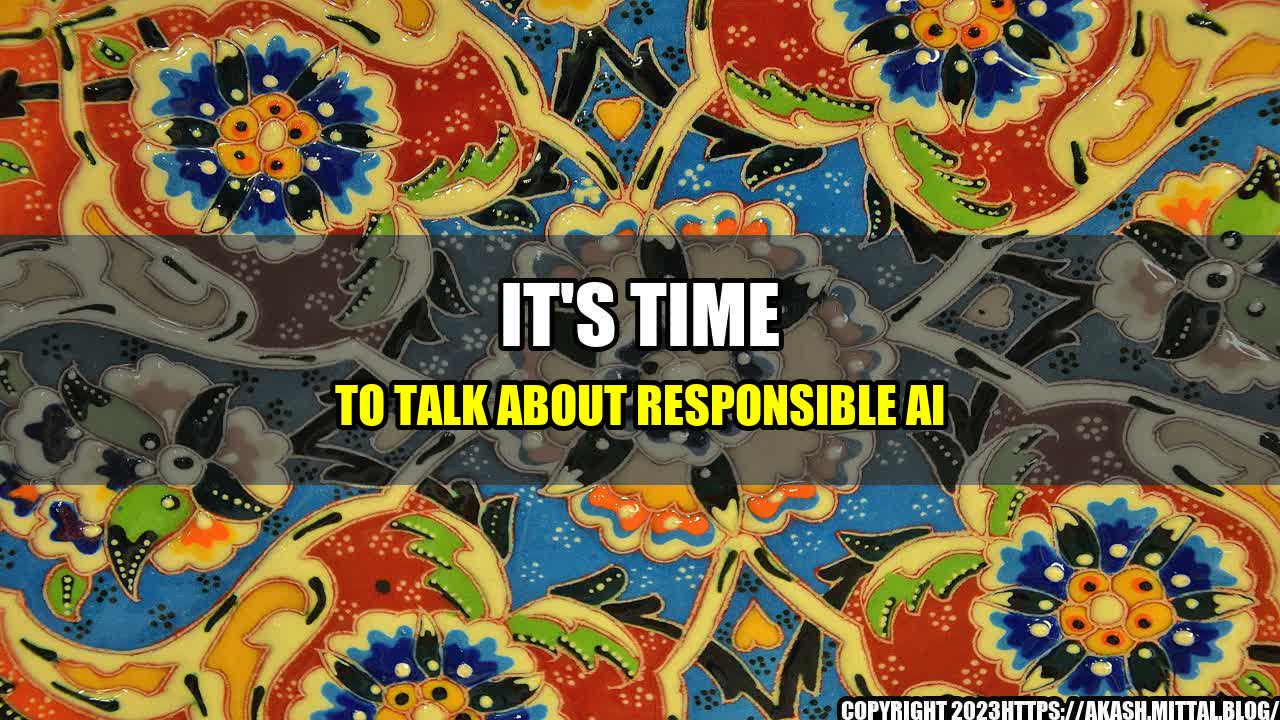Have you ever wondered if your smartphone is spying on you? Well, it's not a far-fetched idea. Your phone collects data on your location, your search history, and even your voice commands. This data is then used to personalize your experience and show you ads that are tailored to your interests. However, as the use of artificial intelligence (AI) becomes more prevalent, the issue of responsible AI becomes more critical.
AI is already being used in industries such as healthcare, education, and finance to improve efficiency and accuracy. For example, healthcare providers can use AI algorithms to identify patients who are at risk of developing a particular condition and intervene before it becomes more severe. However, AI also has the potential to be misused or even abused if not developed and deployed responsibly.
Here are some quantifiable examples of the need for responsible AI:
- In 2020, Amazon had to discontinue the use of an AI recruiting tool that was biased against women.
- A study in 2019 found that facial recognition systems misidentify people of color more often than white people.
- In 2018, an Uber self-driving car killed a pedestrian due to a flaw in the system's object detection algorithms.
These examples demonstrate that AI is far from perfect and that there is a need for responsible development, deployment, and regulation.
Conclusion
- Developers must ensure that AI algorithms are unbiased, transparent, and accountable.
- Regulators must create and enforce standards for the ethical use of AI, with a focus on privacy, safety, and fairness.
- Users must be educated on the risks and benefits of AI and empowered to make informed decisions about its use.
Responsible AI is not just a buzzword; it's a crucial aspect of the ethical and sustainable use of technology. We must prioritize responsible AI to avoid the negative consequences that could arise from its misuse.
Reference URLs
- https://www.theverge.com/2018/5/7/17326008/uber-self-driving-car-crash-arizona-police-report
- https://www.theguardian.com/technology/2018/oct/10/amazon-hiring-ai-gender-bias-recruiting-engine
- https://www.theverge.com/2019/12/19/21029979/facial-recognition-ai-race-gender-class-discrimination-nist-study
Hashtags
Article Category
Technology/Ethics

Curated by Team Akash.Mittal.Blog
Share on Twitter Share on LinkedIn